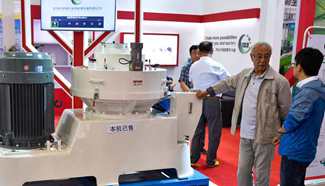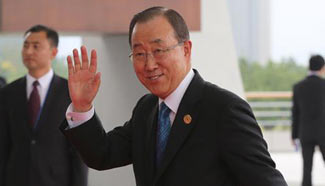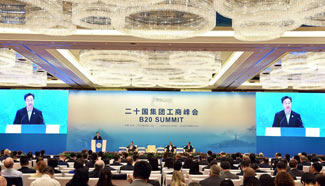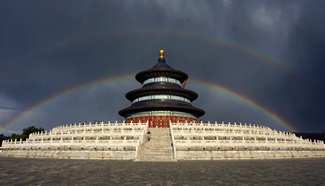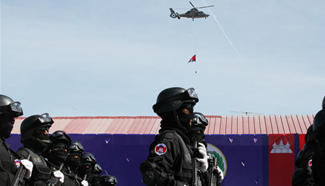BEIJING, Sept. 4 (Xinhua) -- Immediately after the Group of 20 (G20) Hangzhou summit on Sept. 4-5, Chinese Premier Li Keqiang will visit Laos from Sept. 6 to 9 to attend the 11th East Asia Summit and pay an official visit to the country.
Li's visit is widely considered an important diplomatic action to deepen China-ASEAN relations, and promote cooperation among East Asian countries.
UPGRADE CHINA-ASEAN COOPERATION
This year marks the 25th anniversary of the establishment of dialogue relations between China and the Association of Southeast Asian Nations (ASEAN), and developing ties with ASEAN is a priority of China's peripheral diplomacy.
Over the past 25 years, the political, commercial, social and cultural cooperation between China and ASEAN nations has all yielded significant achievements. Now bilateral cooperation has entered into a "period of maturity" and needs to be upgraded.
To echo the need, Li will attend the 19th China-ASEAN (10+1) leaders' meeting to plan future development of relations between the two parties on the basis of successes already achieved.
Currently, the global economy is still trapped in the quagmire of weak recovery. How to promote economic growth and seek development are major challenges of Southeast Asian countries, yet they also provide opportunities and impetus for China-ASEAN pragmatic cooperation.
As ASEAN's most active partner, China has always been offering wisdom and strength for the development of ASEAN nations. In 2013, Chinese President Xi Jinping proposed construction of the 21st Century Maritime Silk Road with ASEAN countries and establish a closer China-ASEAN community of common destiny.
In the same year, Premier Li initiated the 2+7 cooperation framework while attending the 16th China-ASEAN leaders' meeting in Brunei, and outlined together with other ASEAN leaders the roadmap of the "diamond decade."
According to Professor Wei Ling, Director of the Institute of Asian Studies at China Foreign Affairs University, Southeast Asian nations are very much concerned on how China would support the ASEAN common community building in the future, especially within the framework of the Silk Road Economic Belt and the 21st Century Maritime Silk Road Initiative, also known as the Belt-Road Initiative.
China's Vice Foreign Minister Liu Zhenmin mentioned that besides political mutual trust and pragmatic cooperation, China and ASEAN would also build people-to-people exchanges as the third pillar of bilateral relations, which would also serve as a new impetus to bilateral cooperation.
INJECT NEW VITALITY INTO EAST ASIA COOPERATION
One of the shadows against the upcoming East Asia summit is the recent South China Sea Arbitration farce. In recent years, as the East Asia cooperation and integration process have been hampered by some outside forces, the regional situation has become complicated.
Ruan Zongze, executive deputy president of the China Institute of International Studies, said that most of the countries concerned want to cool down the South China Sea issue. Wei said many ASEAN countries have expressed the hope that the East Asia cooperation should refocus on economy and development.
The Chinese premier will also attend the 19th ASEAN-China, Japan and Republic of Korea (10+3) leaders' meeting, the main mechanism for building the East Asia economic community and promoting cooperation in various fields.
Although there have been twists and turns in the development of relations between China, Japan and South Korea, the 10+3 mechanism has led to the achievement of a series of fruitful results in finance, food security and other areas this year.
According to Liu, Li will urge all parties at the meeting to enhance cooperation in areas such as financial security, trade and investment, agriculture and poverty alleviation, inter-connectivity and capacity building.
As for the East Asia Summit, Liu said the premier will introduce China's views on the summit's future development as "a strategic forum guided by leaders," and adherence to principles such as leadership by ASEAN, consensus on the basis of consultation, accommodation of the feelings of all sides, and driving by the "two wheels" of economic development and political security.
Wei suggested that the East Asia Summit emphasize pragmatic cooperation and regional inter-connectivity, and return to the path of joint cooperation to tackle challenges such as terrorism.
CHINA-LAOS TRADITIONAL FRIENDSHIP REFRESHED
Premier Li will also pay an official visit to Laos, the first during his term. The visit will surely propel bilateral friendly cooperation to move forward, and promote development of China-Laos comprehensive strategic cooperative partnership.
Since the two countries established diplomatic relations 55 years ago, China and Laos have been trusting each other politically, and cooperated fruitfully in trade and infrastructure construction, bringing real benefits to both peoples.
Located at a unique geographical position, Laos is China's important partner in building the Silk Road Economic Zone and the 21st Century Maritime Silk Road.
The two countries signed a treaty last year on joint construction of the China-Laos railway linking Vientiane to the China-Laos border area in the north and Thailand in the south, which is currently progressing well.
The Lao government also expects to develop the country's infrastructure construction with the help of China's Belt-Road Initiative, and invite Chinese companies to participate in the exploration of Laos' rich hydropower resources.




